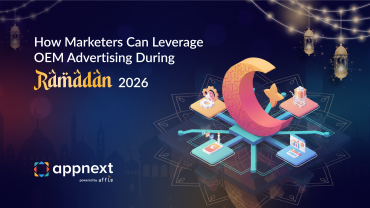
The data from last year, as summarized in the State of Mobile Report published annually by data.ai, was, as ever, an illuminating snapshot into global mobile trends of the previous year. These insights from data.ai are almost an “App Oscars” in which certain verticals are celebrated by users as if winning the academy award for their innovative and engaging experiences.
The overall narrative of the mobile app economy in 2023 was one of resilience and resurgence. After a brief slowdown in 2022, consumer spending on apps climbed by 3% to a staggering $171 billion in 2023. This growth was not mirrored in downloads, which experienced a minimal increase, pointing to a significant shift in consumer preferences and spending habits towards non-game apps.
Leading this shift are social apps, particularly TikTok, which saw an 11% increase in consumer spending, reaching $64 billion. TikTok’s achievement of over $10 billion in lifetime spending not only cements its position as a pioneer in the creator economy but also highlights the opportunities for social apps in this space. With consumer monetization expected to grow by 150% to $1.3 billion this year, the potential for innovation and value capture in this segment is limitless.
Social platforms have traditionally focused on advertising for revenue. However, TikTok’s use of tipping and the growing popularity of subscription models across various apps have demonstrated the lucrative possibilities of in-app purchases. From 2020 to 2023, consumer spending in social apps has nearly doubled, signaling a shift towards more diversified revenue streams.
Unlike its competitors, TikTok mainly earns from one-time purchases, which sets it apart from other major social apps that lean heavily on subscriptions for revenue. Snapchat, for example, has seen significant success with its Snapchat+ subscription service.
Another trend was the explosive growth of the Generative AI (GenAI) app market, which expanded sevenfold. This surge, led by platforms such as ChatGPT, Ask AI, and Open Chat, ushers in a new era of consumer experiences, from AI chatbots to art generators. The global appetite for AI-driven solutions is huge, presenting a lucrative opportunity for apps outside this genre to integrate AI features for enhanced user engagement.
The rise of Asian e-commerce giants in recent years is challenging U.S. market dominance, thanks to the popularity of China’s Temu and Singapore-based SHEIN. However, e-commerce platforms globally are increasingly facing competition from physical stores, which are leveraging the resurgence of in-person shopping to enhance mobile engagement. Apps linked to supermarkets and convenience stores, as well as those of other retailers, observed annual download increases of 9% and 7%, respectively. This contrasts with a 7% decline in e-commerce app downloads over the same period.
The integration of mobile shopping platforms is essential for traditional retailers. Ignoring this trend risks falling behind, as mobile shopping hours continue to remain well above pre-pandemic levels.
Of course, engaging smartphone experiences are also the result of continuous innovation and swift market responses from device manufacturers. The premium smartphone market enjoyed record growth in 2023, despite an overall decline in smartphone sales. Recent data shows that premium smartphones accounted for 24% of the total market volume and generated 60% of the industry’s revenue. The growth was strongest in China, India, the Middle East and Africa, and Latin America, with India emerging as the fastest growing market. The Android segment had a particularly good 2023, with Samsung increasing its share to 17 percent and Huawei rising to five percent, buoyed by strong performances in China and innovative products like the new S23 series.
For developers and marketers, these insights are invaluable. The success of social apps and the burgeoning field of GenAI technologies offer a clear direction for future investment and development. To capitalize on these trends, it’s imperative to focus on developing features that foster user-generated content and social interaction, integrating AI and chatbot functionalities, and emphasizing personalized content and recommendations. Apps that can offer hyper-tailored experiences based on individual preferences are likely to see higher retention and satisfaction rates. Appnext, with its advanced user targeting and recommendation engine, can facilitate developers and marketers in effectively promoting these personalized experiences to users. Appnext solutions seamlessly integrate with these innovative platforms, effectively showcasing them to a highly engaged user base to optimize installations and retention.
Lastly, personalization remains the most important touchstone for success. Tailoring the app experience to resonate with individual user preferences is indispensable in distinguishing one’s offering in an overcrowded market.
Appnext is partnering with developers and marketers in every vertical to help clinch their own “App Oscar”. By offering an array of advertising options that blend into the users’ mobile experience, coupled with advanced tools and insights that enable a tailored and impactful mobile experience, Appnext ensures both continued user engagement and business growth.



Comments are closed.